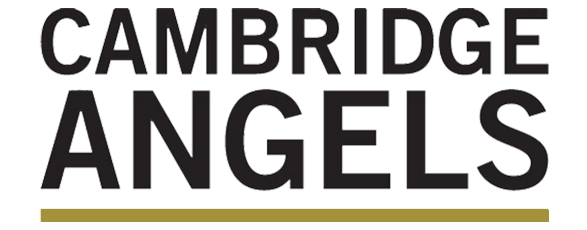As a baby starts to cry, a soothing voice can be heard from the corner of the room. “Don’t worry, little one,” it says. “Daddy is on his way.” But there’s something missing. There’s no parent or babysitter to be seen, only an electronic smart speaker that a Cambridge-based company is training how to listen and respond to the world around it.
For eight years, Audio Analytic has been developing software that can identify background noises, from recordings of crying babies to barking dogs. It’s probably the only technology start-up that reserves a portion of its budget for smashing windows. According to Chris Mitchell, its founder and chief executive: “We were set up to give machines a sense of hearing.”
Speech recognition is an established area of artificial intelligence, with an increasing number of homes owning some form of listening device, from Amazon’s Alexa to Apple’s Siri. People are used to asking them for a weather update or a reminder about meetings in the calendar.
Audio Analytic wants to broaden the assistant’s horizons. “When we deal with all the sounds in the universe — babies crying, dogs barking, windows being broken — none are governed by language models. You need very different types of artificial intelligence to deal with these and it’s a very new field,” Dr Mitchell said.
When he founded the business in 2010, there were no companies working in sound recognition. He had completed his PhD in a related field at Anglia Ruskin University and had a choice. “It was either go and do something else, or form a company that did it.”
Audio Analytic raised $8.5 million from investors and has partnerships with large technology companies including Cisco, Intel and Hive, the “smart home” division of Centrica. It has 42 employees at two locations in Cambridge, plus a sales office in San Francisco.
Forming a company was not such a leap for Dr Mitchell, 38, who funded his PhD by running his own network consultancy business. Balancing entrepreneurship and studies wasn’t easy — professors don’t always appreciate their students running off to fix clients’ software — but it proved useful preparation.
Audio Analytic ventured first into the connected home market, with products including a light bulb that detects the sound of windows being smashed. It has worked on home security cameras and speakers and earlier this year announced a partnership with Bragi, the headphone maker, to embed listening software to alert pedestrians and cyclists to hazards such as an emergency vehicle. Integrating the software into self-driving cars and health devices that can listen out for a patient’s audible symptoms, such as coughs and sneezes, are next on the agenda.
The first step in the start-up’s journey involved deciding which sounds to index and analyse. Dr Mitchell can recall trying to list every noise that might be useful and marketable. “What I quickly ended up with was a list of sounds and the realisation that I didn’t really know how to value markets.”
Now Audio Analytic has licensed six common sounds to clients and has a further fifteen in development. All are recorded and analysed in a vast, soundproofed space that removes all environmental or background effects so that computers can learn the most basic form of a sound. Within this foam-decked room, all manner of sounds are recreated, from the smashing of windows — a rite of passage for new employees — to crying sessions with babies.
“When devices respond to these sounds, they suddenly take on less inanimate properties,” Dr Mitchell said. “They tend to [feel] more caring, more understanding . . . more of the things you want from modern consumer electronics.”
An Alexa speaker, after notifying parents that the baby is crying, can play Twinkle Twinkle Little Star. When a window breaks, it announces that it will “turn on lights, play the loud alarm, notify the owners and set the lasers to stun”. Cue a grin from Dr Mitchell. “We’ve got to have fun with Alexa.”
The company takes a “follow the money” approach to choosing noises, but pushing the boundaries of artificial intelligence is as important as commercial success. “Giving something a sense of hearing is valuable. We’ve got two ears for a reason.”
Silicon Fen’s bridge to the world of finance
The concentration of start-ups in Cambridge has given it the nickname Silicon Fen and Cambridge Ahead, the lobby group, calculates that its 3,000 technology businesses have a combined turnover of £4.1 billion and support nearly 20,000 jobs (Emma Yeomans writes).
The city’s technology heritage owes much to the close links between industry and its university. Arm Holdings, the computer and smartphone chip maker now owned by Softbank, of Japan, is probably the best-known success story.
Some famous players have a base there, too, including Amazon, while Apple confirmed rumours last year that it had a development office for its Siri artificial intelligence personal assistant software in the city.
Cambridge also has its own network of venture capitalists, including IQ Capital, Cambridge Angels and Rockspring, and these local investors were where Audio Analytic found its first funding.
Many of those who saw the AI software company’s potential had been entrepreneurs themselves, Chris Mitchell, its founder, said, adding that it is a positive thing for young companies. “You need people who know how to build early stage companies investing back into start-ups, because they invest under different criteria [to other financiers].” He may need patient investors as he insists that the bottom line isn’t everything — a distinction between the model of British start-ups and their American counterparts, which want to commercialise their products more quickly.


